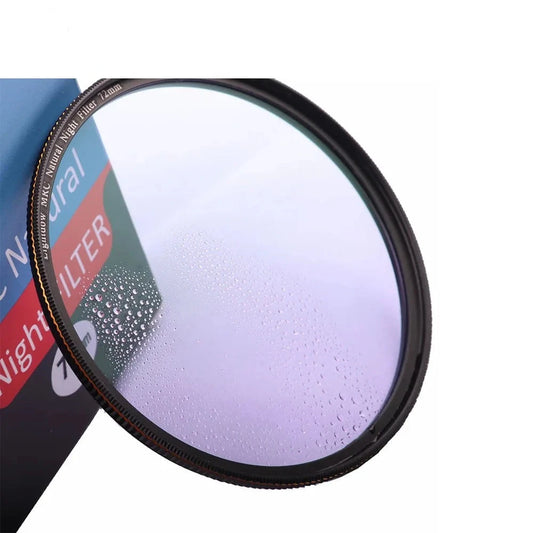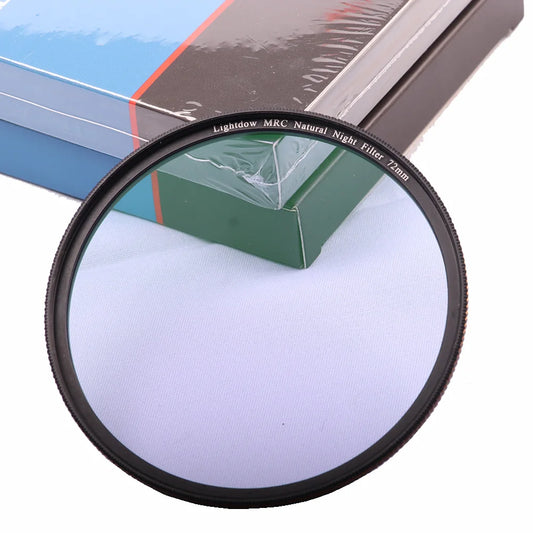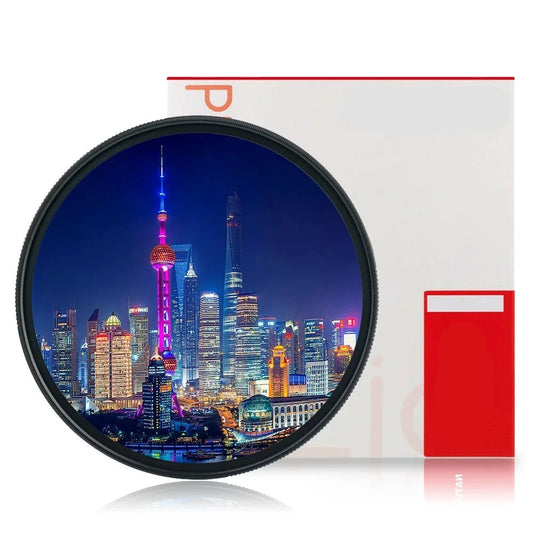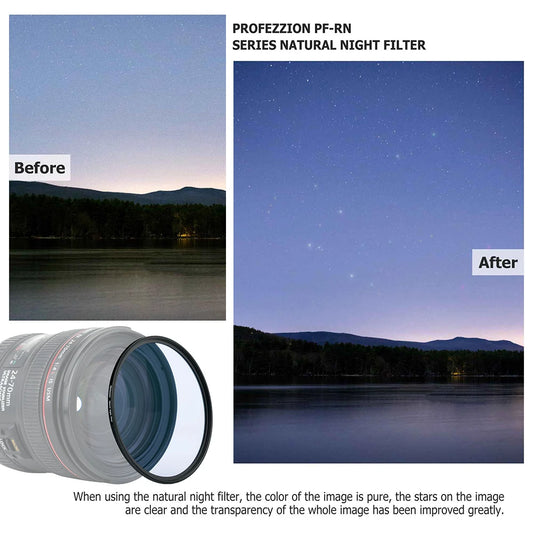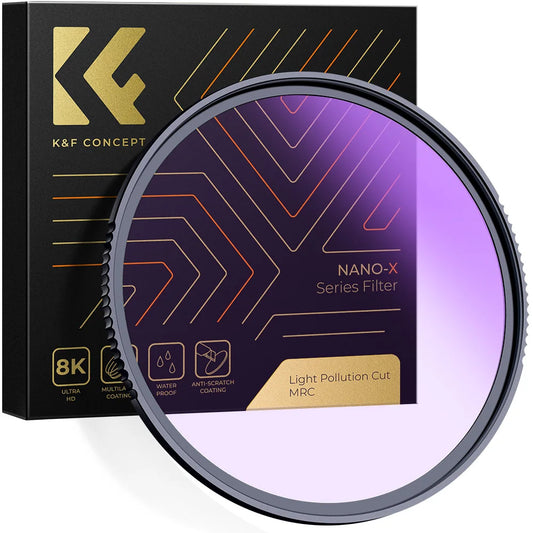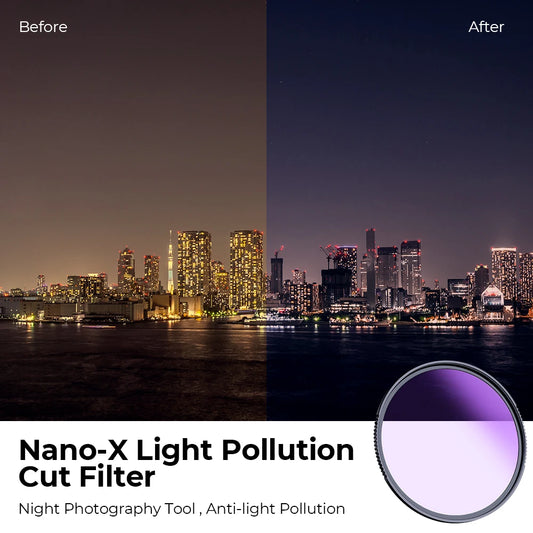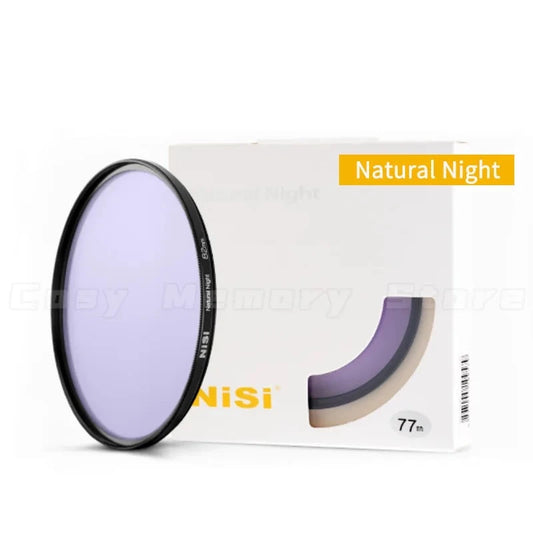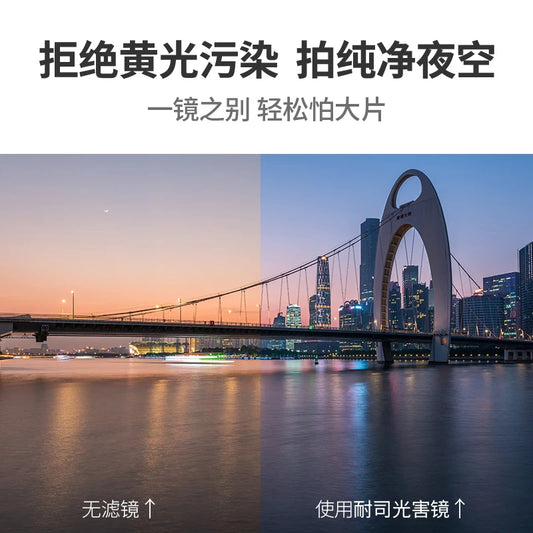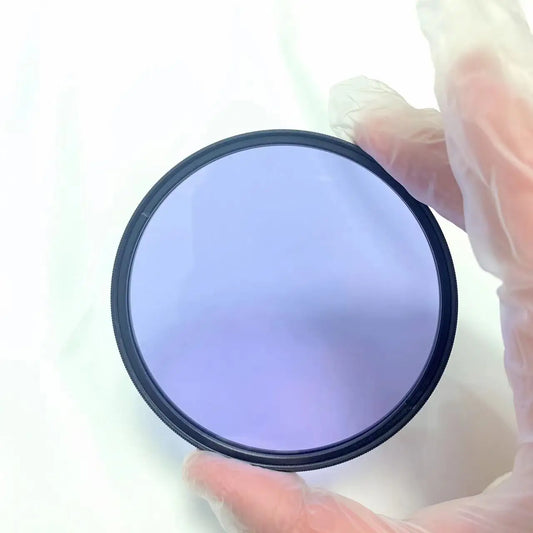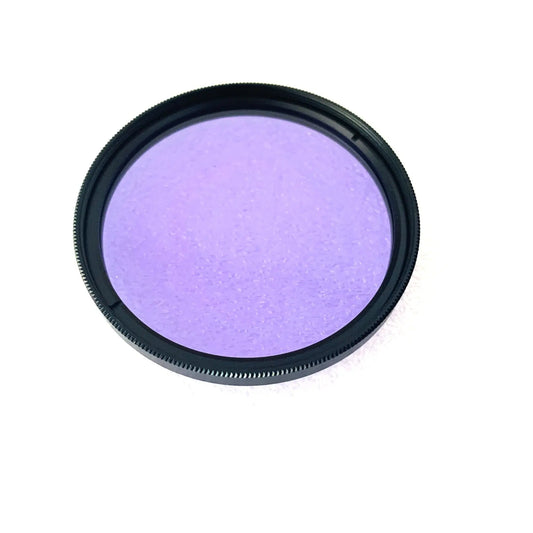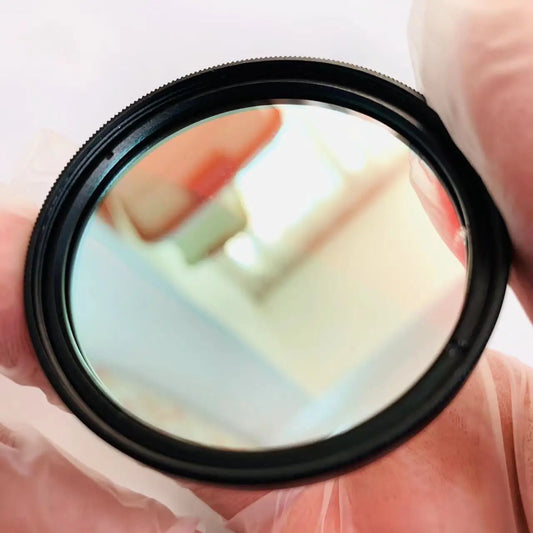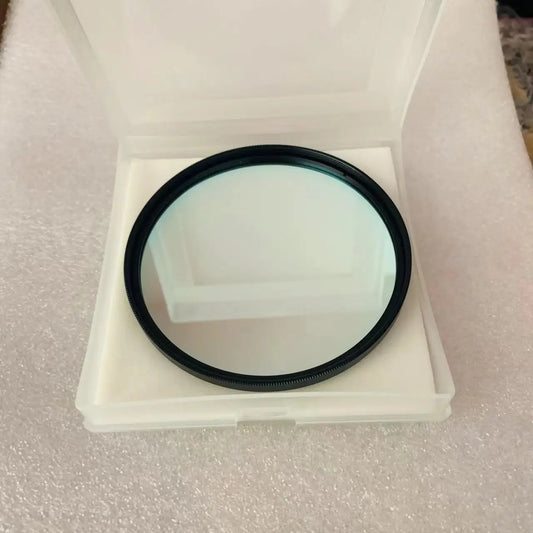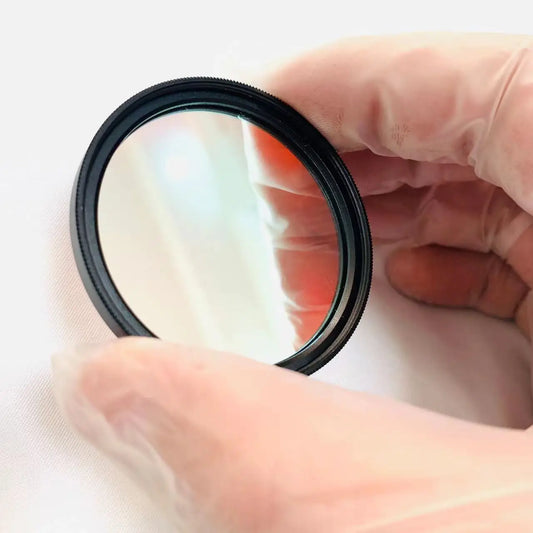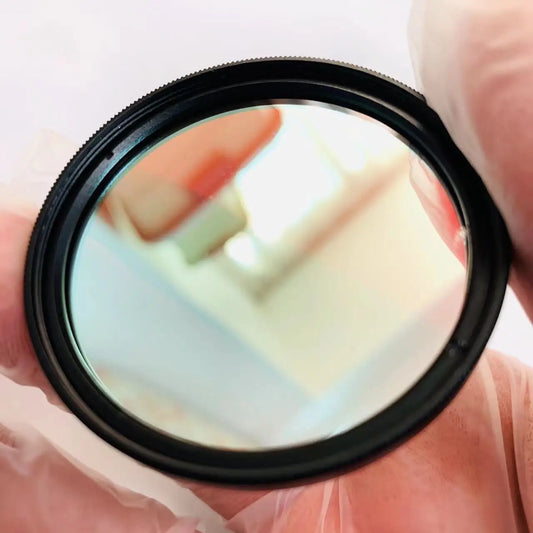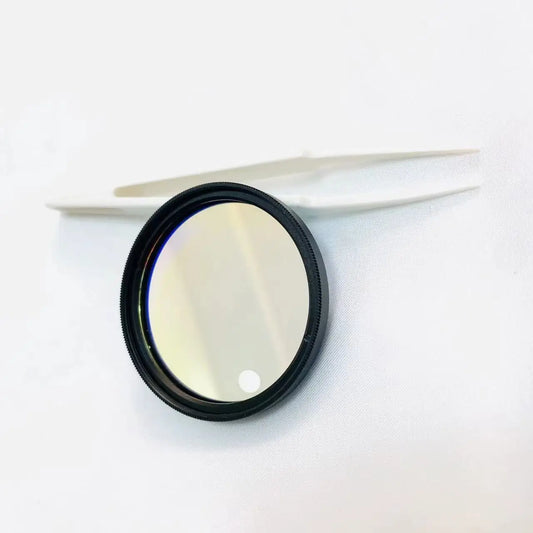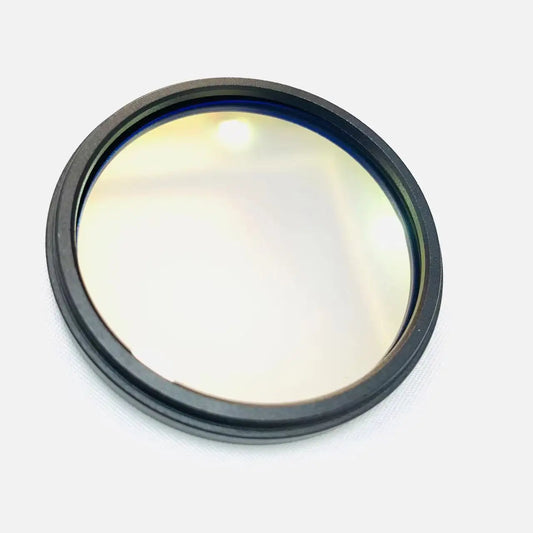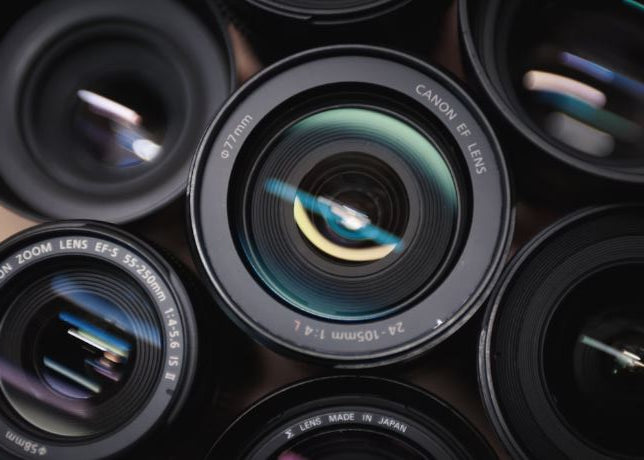
Lens Filters for Cameras
At Mandiak, we believe every photographer deserves the best tools to unleash their creativity and capture stunning images. Our lens filters are meticulously crafted to enhance your photography experience, ensuring every shot is imbued with unparalleled clarity and vibrancy. Explore our wide range of premium lens filters designed to elevate your photography game to new heights.
Featured products
-
Natural Clear Night Filter
Regular price From $62.36 USDRegular priceUnit price / per -
Clear Night Filter - Natural Night Light Pollution Filter
Regular price From $75.99 USDRegular priceUnit price / per -
K&F Concept 58mm 67mm 77mm 82mm Nano-X Series Clear-Natural Night Filter Light Pollution Reduction Filter for Night Sky/Star
Regular price From $79.99 USDRegular priceUnit price / per -
NiSi Natural Night - Light Pollution Filter
Regular price From $91.38 USDRegular priceUnit price / per -
Didymium Filter for Camera Lens
Regular price From $94.50 USDRegular priceUnit price / per -
H-Alpha Filter for Camera Lens
Regular price From $120.00 USDRegular priceUnit price / per -
SII Filter For Camera Lens
Regular price From $122.00 USDRegular priceUnit price / per -
H-Beta Filter for Camera Lens
Regular price From $122.00 USDRegular priceUnit price / per
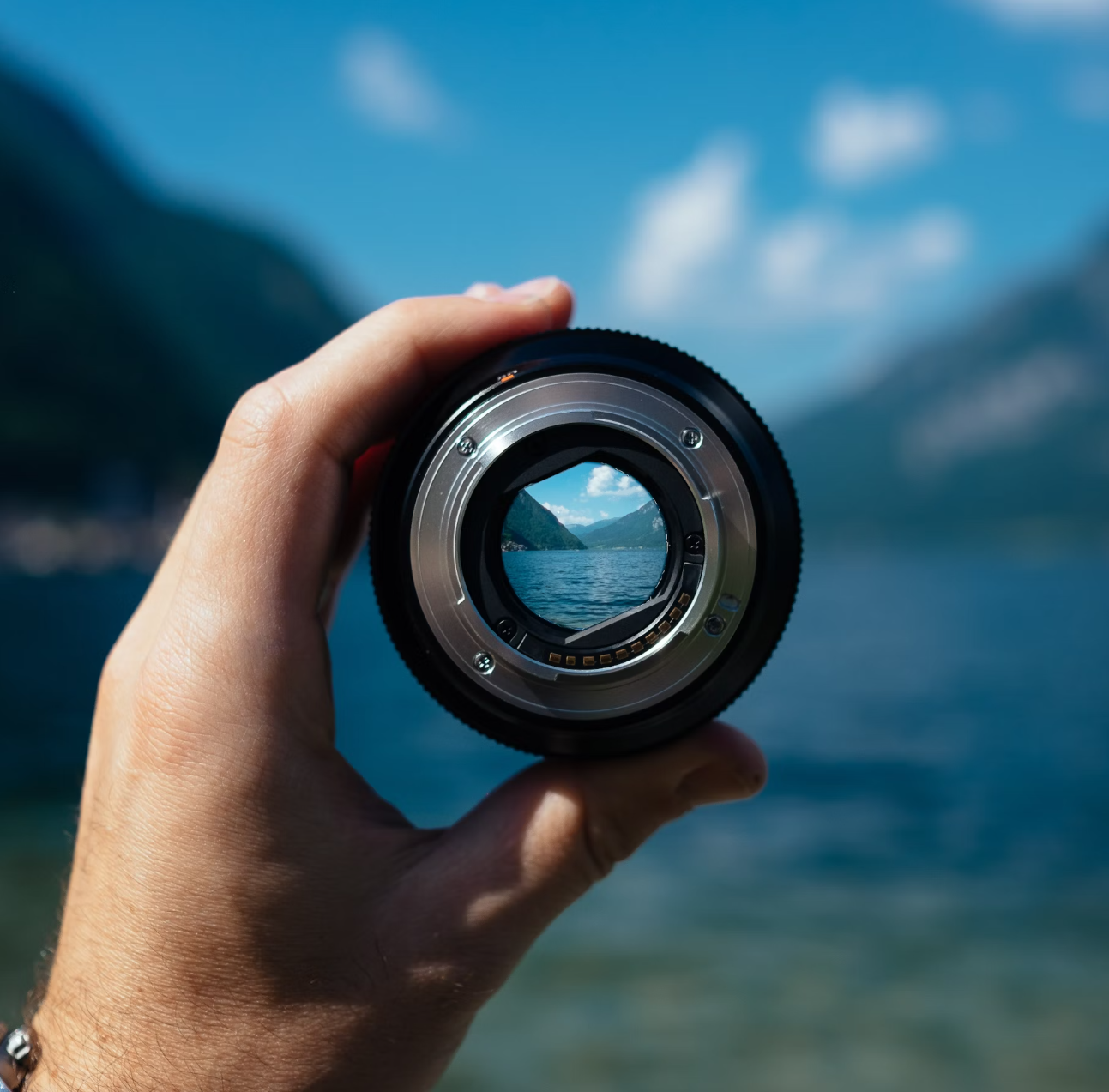
Why Mandiak?
Exceptional Quality: Crafted from high-quality materials and precision-engineered to deliver outstanding optical performance.
- Compatibility: Designed to fit a wide range of camera lens sizes, ensuring compatibility with your existing gear.
- Professional Support: Our team of photography enthusiasts is here to assist you with any inquiries or concerns you may have.
- Cutting-Edge Technology: Our filters are crafted using state-of-the-art materials and advanced manufacturing techniques to deliver superior optical performance and exceptional image quality.
- Astrophotography Expertise: Developed by astrophotography enthusiasts for astrophotography enthusiasts, our filters are meticulously designed to meet the unique challenges of capturing the night sky.
Discover Our Products
- UV (Ultraviolet) Filters: UV filters are primarily used to protect the front element of the lens from scratches, dust, and moisture. They also help reduce the bluish cast that can occur when photographing scenes at high altitudes or in coastal areas.
- Polarizing Filters: Polarizing filters are used to reduce glare and reflections from non-metallic surfaces such as water and glass. They can also enhance contrast and saturation, making them popular for landscape photography.
- Neutral Density (ND) Filters: ND filters reduce the amount of light entering the lens, allowing photographers to use longer shutter speeds or wider apertures in bright conditions. They are commonly used for achieving motion blur in moving subjects or for maintaining a shallow depth of field in bright environments.
- Graduated ND Filters: Graduated ND filters have a graduated density that transitions from dark to clear, allowing photographers to balance the exposure between the sky and the foreground in landscape photography. They are particularly useful for scenes with a significant difference in brightness between the sky and the ground.
- Color Correction Filters: Color correction filters are used to adjust the color balance of an image, typically for correcting color casts or achieving specific creative effects. Examples include warming filters (e.g., 81A) for adding warmth to images or cooling filters (e.g., 80B) for reducing excessive warmth.
- Special Effects Filters: Special effects filters come in various types, including diffusion filters, star filters, and prism filters, among others. These filters are used to add artistic effects or create unique looks in photographs.
- Infrared (IR) Filters: Infrared filters block visible light while allowing infrared light to pass through, enabling photographers to capture images in the infrared spectrum. IR filters can create surreal, otherworldly images with unique color renditions.
- Light Pollution Filters: Light pollution filters are specifically designed for astrophotography to reduce the effects of artificial light pollution, allowing photographers to capture clear images of celestial objects even in urban areas.
- Narrowband Filters: Narrowband filters isolate specific wavelengths of light emitted by nebulae and other deep-sky objects, enhancing contrast and visibility of these celestial phenomena in astrophotography.
- Close-Up Filters (Macro Filters): Close-up filters are used to enable closer focusing distances, effectively turning a standard lens into a macro lens for capturing detailed close-up shots of small subjects.
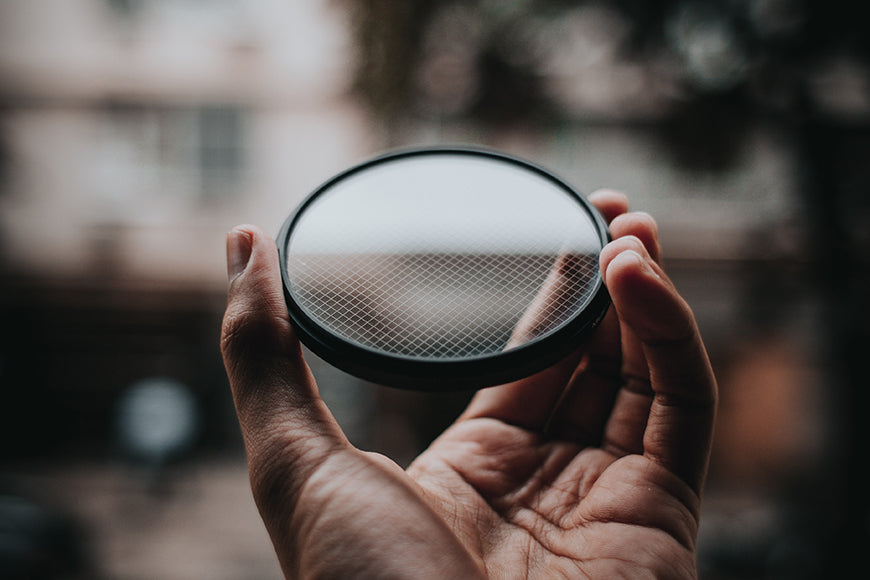
Why Lens Filters?
Integrating filters into your camera lens arsenal can significantly improve the quality of your photography while offering a remarkable return on investment. These compact additions serve as versatile tools, allowing you to achieve professional-grade results with minimal effort. The beauty lies not only in their ability to enhance the aesthetics of your images but also in their cost-effectiveness. The improvement they bring to your photographs in relation to their price and the investment in your camera lens is exceptionally favorable. Filters act as guardians, shielding your lens from dust, scratches, and moisture, ensuring its longevity and peak performance. Moreover, they play a pivotal role in managing light, reducing glare, enhancing contrast, and balancing colors, enabling you to capture scenes with unparalleled clarity and vibrancy. Whether you're a seasoned photographer or just starting your journey, incorporating filters into your setup is a decision that promises to elevate your craft to new heights.
Must See
-
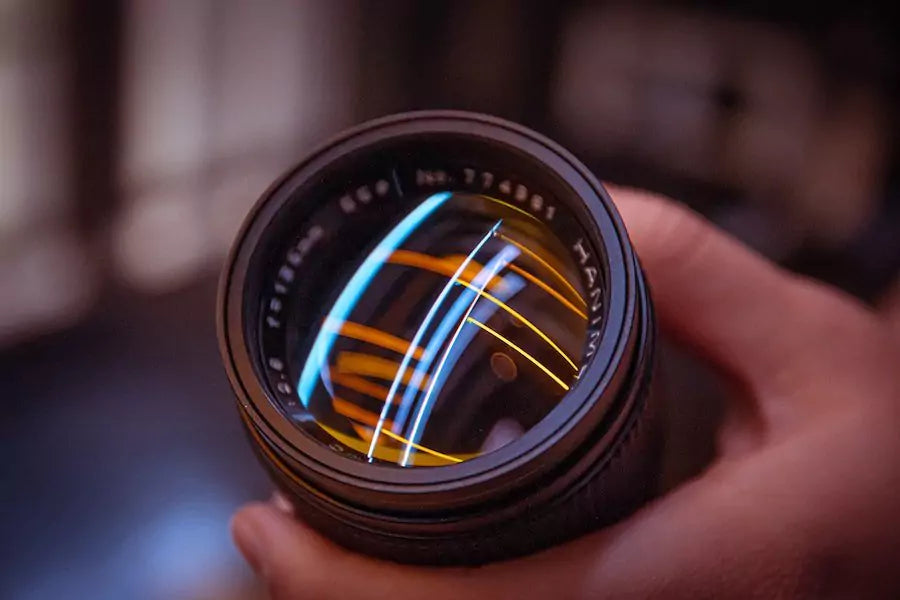
Creative Filters
-
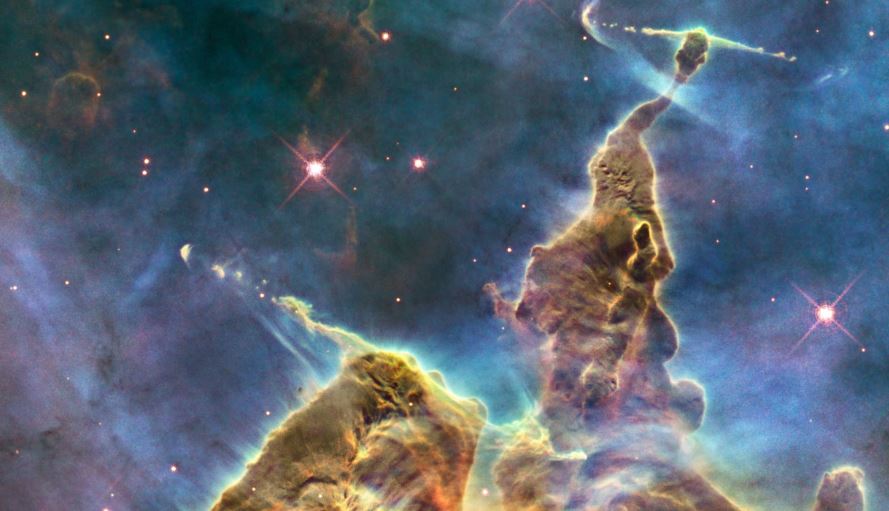
Astrophotography Filters
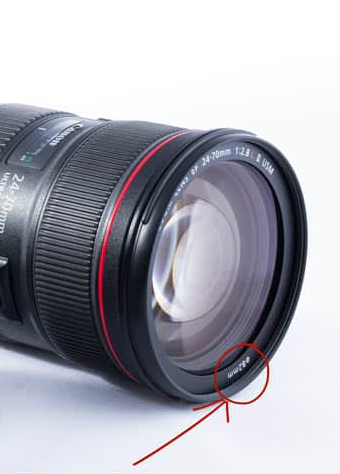
What Is A Filter Thread?
A filter thread refers to the standardized threading found on the front of camera lenses that allows various accessories, such as filters, to be attached directly to the lens. The filter thread is typically located on the outer rim of the lens barrel and is designed to accommodate screw-on filters or other threaded accessories.
The size of the filter thread is measured in millimeters and is usually indicated on the lens with the symbol "ø" followed by a number (e.g., ø58mm). This measurement represents the diameter of the filter thread, indicating the size of filter that can be attached to the lens.
Filter threads are standardized across most lenses, but it's essential to check the specific filter thread size of each lens before purchasing filters or other accessories to ensure compatibility. Using filters with the correct thread size ensures a secure fit and prevents any vignetting or other issues that may arise from mismatched sizes.
In addition to filters, other accessories that can be attached to the filter thread include lens hoods, lens caps, and adapter rings for attaching filters of different thread sizes. The filter thread serves as a versatile and convenient mounting point for a variety of photography accessories, allowing photographers to customize and expand the capabilities of their lenses.
-

DSLR Camera Accessories

